Rheumatoid arthritis (RA) causes pain, swelling, and stiffness in your joints. Along with following your prescribed RA treatment plan, you may find added relief by making changes to your diet.
“There’s no one food that helps everyone with rheumatoid arthritis,” says Scott Zashin, MD, a rheumatologist at Presbyterian Hospitals of Dallas and coauthor of Natural Arthritis Treatment. But some people feel that eating or drinking certain things and cooking with specific herbs and spices can help reduce inflammation and ease joint pain.
A variety of studies have shown that the following foods, herbs, and spices may be helpful for managing RA symptoms. You’ll need to experiment to see which, if any, work for you, says Dr. Zashin. And before you make any changes to your diet, be sure to talk to your doctor first to get the green light.
1
Fatty Fish
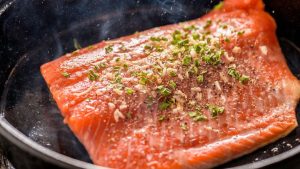
Wild salmon, herring, mackerel, sardines, anchovies, trout, and other fatty fish are good sources of omega-3 fatty acids, which decrease inflammation and reduce symptoms of RA. Consider eating it twice a week or supplementing with omega-3 fish oil capsules, which can potentially reduce inflammation and slow the progression of RA, according to research in Autoimmunity Reviews.
2
Turmeric
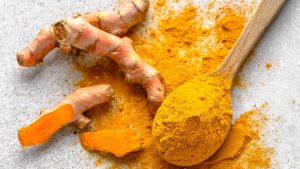
7 Herbs and Spices for Rheumatoid Arthritis
3
Ginger

Ginger has long been recognized for its ability to calm the stomach — though it also contains chemicals that may improve RA symptoms. According to a study, supplementing with ginger may help improve immunity and reduce inflammation in people with RA. Some cautions, though: Ginger can thin the blood, so if you’re taking a blood-thinning medication, such as warfarin (Coumadin), talk to your doctor before adding ginger to your diet; and ginger can also worsen symptoms for some people with gastroesophageal reflux disease (GERD).
4
Green Tea
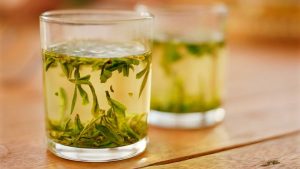
A cup of green tea a day may keep the joint pain away. Zashin notes that green tea has antioxidant properties, which are helpful in combating disease. One study found that green tea offers an anti-inflammatory effect for people with RA because it contains catechins, which are antioxidants. But green tea also contains small amounts of vitamin K, which can counteract certain blood thinners. That makes it important to talk to your doctor before adding the drink to your RA treatment regimen if you take blood thinners.
5
Fresh Coriander
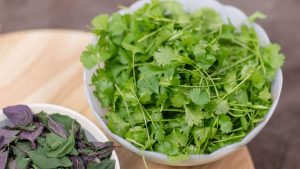
This green, curly-leafed herb goes by different names — coriander, cilantro, Chinese parsley — and it’s a staple in Mexican, Thai, and other cuisines. Some people say it also helps their RA symptoms. Coriander was among the many nutraceuticals (food extracts) shown to have a beneficial effect on chronic inflammatory diseases like RA, according to a study.
6
Pineapple

7
Parsley
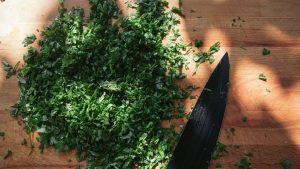
The ubiquitous garnish on restaurant entrées, parsley has been shown to have powerful properties. It contains the flavonoid luteolin, and a study reported that this and other flavonoids help block inflammatory proteins. Further studies of parsley’s effects on people are needed, but the easy-to-grow herb is another anti-inflammatory food that just might help reduce pain and stiffness while brightening up your salads.
8
Sour Cherries and Pomegranates
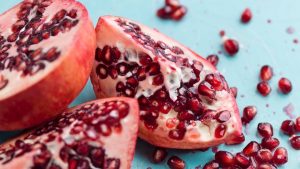
Both of these fruits contain the flavonoid anthocyanin. According to a review in the journal Nutrients, cherries contain antioxidant and anti-inflammatory properties, which help combat chronic conditions such as RA. Zashin is a proponent of tart or sour cherries for symptom improvement. Sour cherries may also lower levels of nitric oxide, a compound linked to RA, he says. Like cherries, pomegranates are rich in antioxidants, which can protect your cells from the damaging effects of free radicals.
9
Blackstrap Molasses

Many people with RA swear by blackstrap molasses and have for years, but the scientific research is limited, Zashin says. One reason some suspect molasses may help relieve pain is that it’s rich in vitamins and nutrients, including magnesium, which some research has shown may help preserve nerve and muscle function as well as joint cartilage. For example, one study found that magnesium may play an important role in the progression of some inflammatory conditions, such as RA, while a lack of the mineral can cause inflammation. Other good sources of magnesium include nuts, beans, whole grains, bananas, green vegetables, dairy products, and olive oil.




